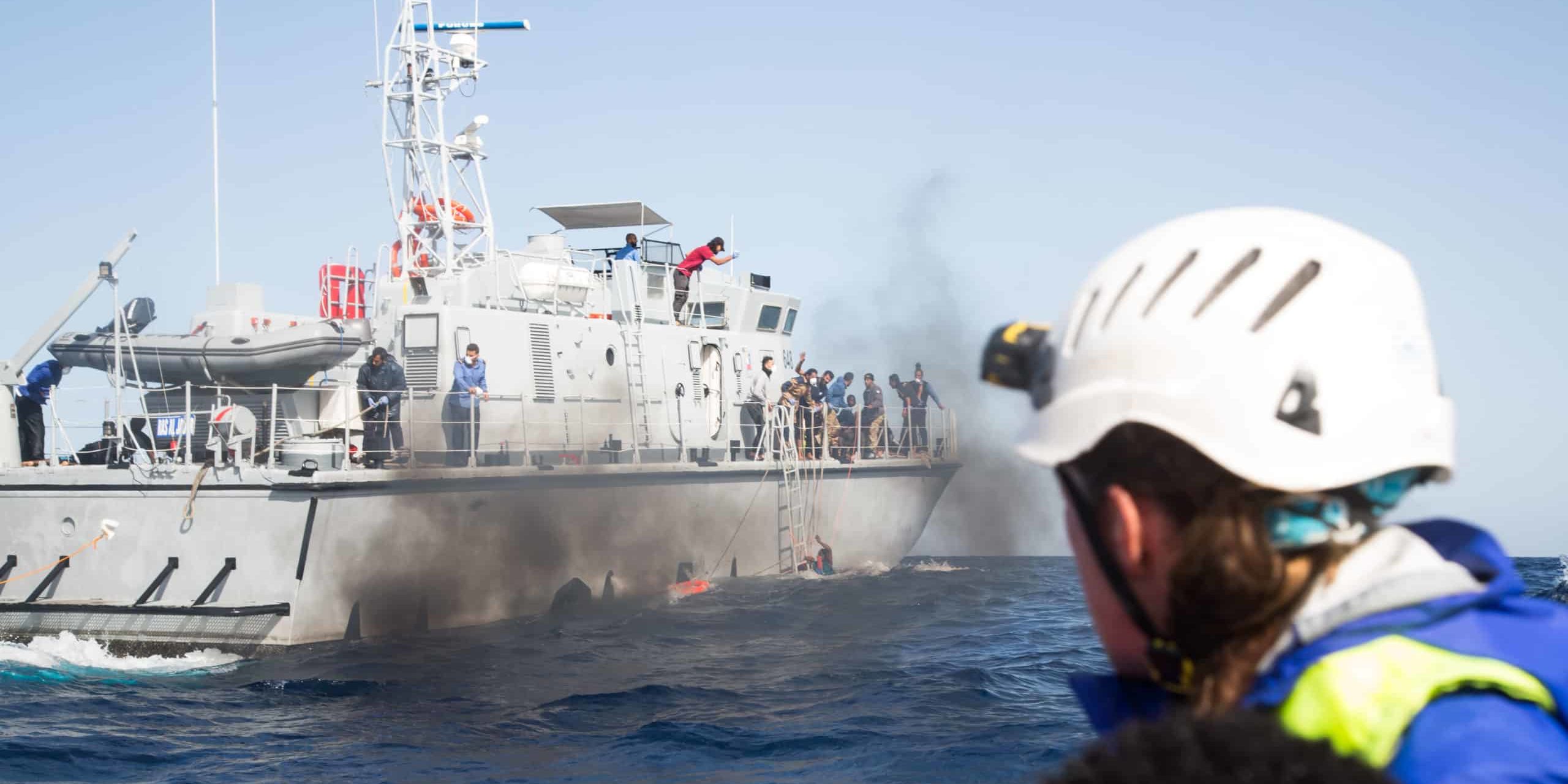Central Mediterranean, 07.11.2017
Yesterday, the 6th of November, a tragedy occurred in international waters approximately 30 nm north of Tripoli. A rubber boat sent a distress call, to which different units reacted in coordination with the responsible Maritime Rescue Coordination Center in Rome. The situation was grave: people were already in the water when the Sea-Watch 3 arrived on scene. An Italian navy helicopter, a French warship and the Sea-Watch 3 were coordinating effectively via marine radio channel 16. According to the protocol for such situations, the ship best equipped for the rescue operation takes over the ‘On-Scene Command’, so the French warship and the helicopter acknowledged Sea-Watch 3 as such and tried to take the necessary steps to coordinate and carry out the rescue together calmly.
However, a patrol vessel of the Libyan Coast Guard was not willing to respond to radio calls, both from Sea-Watch 3 and the military units present to help coordinate the rescue. Instead, the Libyan patrol boat closed in at high speed – even though it is not an appropriate vessel to take people out of the water compared with the other assets on the scene, due to its shape and equipment. The Libyan coast guards did indeed take out people from the water, but mainly, people climbed onto the Libyan Coast Guard vessel themselves in fear of their lives without assistance by the coast guards. The Libyans’ aggressive and uncoordinated behaviour caused more stress and chaos than relief. When the Libyan Coast Guards started to beat and threaten people on their vessel, some tried to jump back into the water. Instead of calming the situation down, Libyan Coast Guards even threw potatoes and lifebuoys at the Sea-Watch rescue boats that were deployed to take people out of the water. In such a serious situation it is paramount to avoid further stress and panic, yet the Libyan Coast Guards did the opposite, their only aim to take as many people back to the Libyan shore as possible.
The Libyan Coast Guards have not even deployed their rescue boat which is meant to be an asset in case of man overboard. They left it stored on their aftdeck during the whole operation. Instead of throwing potatoes at our crew, the self-declared coast guards could have made themselves useful for once. Obviously, their priority was not the rescue, but to drag people back to Libya.
With this intention in mind, the Libyan Coast Guard vessel departed the scene at full speed, even though one person was still hanging on to the starboard side and was dragged through the water. This life-threatening situation was reported by Sea-Watch through CH 16 repeatedly with no response. In the end, the Italian helicopter had to intervene to avoid another fatality. We acknowledge the role of the Libyan Coast Guard saving lives during rescue operations, but their reckless behaviour while trying to ‘pull back’ as many migrants as possible to Libya have repeatedly caused more harm than help. Furthermore, their actions – for which they are funded by the European Union – violate international law. We urge the Libyan Coast Guards to respect international law and to avoid increasing the level of chaos in a rescue operation.
[arve url=”https://www.youtube.com/watch?v=6JlosDsVq5E” /]
Video: Libyan Coast Guard vessel speeds up while one person still clings to the starboard side (surveillance camera).
Photo: same scene, credits: Lisa Hoffmann / Sea-Watch











